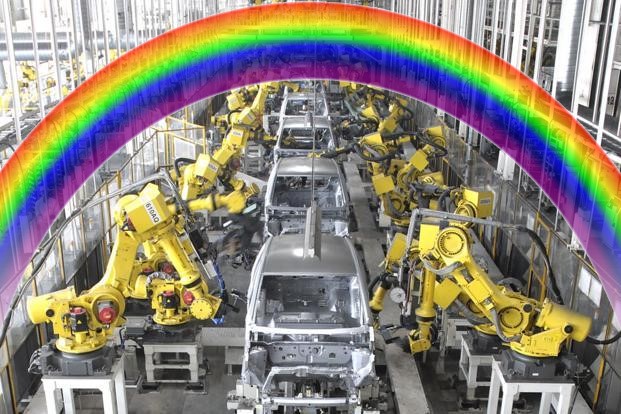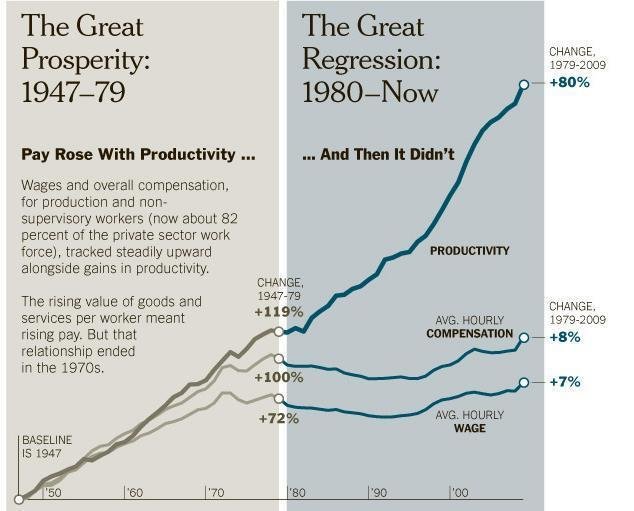Why automation could be a good thing
Increased work automation is coming, and with it, fears of increased unemployment. Articles pop up regularly discussing which jobs are and are not "automation proof". The public has a general sense of the storm coming in their direction, but, to make matters worse, the political class is largely ignoring the issue. In the USA, for example, the perils of automation and solution proposals were not brought up by either major party presidential candidate during the 2016 election circus. Not brought up at all.

This is what automation could do in a rational society:
Automation could free up individuals, either completely or partially, from the shackles of wage slavery, bringing happiness and joy, rainbows and chocolate.
Instead, the average worker now dreads the looming "downsizings" and "streamlinings" and "cost improvement plans."
Instead, students have an added stressor in their lives, engaging in the usually futile endeavor of futurology: trying to guess how much will automation affect the trade or profession they have, or will soon, choose.

Automation could free workers from being cogs for rent in the machine, conductors of mind-numbing tasks for pay that has been stagnant around the globe. Stagnation such, that economists have a dreary name for it: the "great regression."
Instead, we have a workforce that will be reduced to make ever more desperate job hunting decisions and make do with ever lower wages.
Automation could free up a substantial part of the work week. If automation were to replace, say, 70% of the workload in a given business, that would mean that each worker would see more or less a 70% reduction in their total working time. There's no need to lower wages (certainly not significantly) or fire anybody because the ensuing automation would allow the business to carry on with the same level of productivity (or probably even more as a function of cost). Remember, before the workers movement, the current 35-48 hour workweek was largely a dream. Who knows what the average workweek could look like in a better future.
Instead, in our current capitalist system the hypothetical business will move to fire more or less 70% of its workforce (if not significantly more) and then make the remaining 30% of the employees conduct that 30% share of the workload that can't be automated.
The question becomes, once they are through with it, who will be left able to afford the fruits that automation produces? Able to engage in the mass consumption that corporations thrive on? Stagnant wages. Increased underemployment. Increased psychological anguish. Increased wealth inequality. Decreased human dignity. Environmental catastrophe. Unfettered capitalism is a self-defeating system doomed to at best go through boom-bust cycles and at worst usher in the collapse of modern human civilization.
@OriginalWorks
The @OriginalWorks bot has determined this post by @tychoxi to be original material and upvoted it!
To call @OriginalWorks, simply reply to any post with @originalworks or !originalworks in your message!